Skills: EBC in panel on STEM teaching and women apprentices at the 2025 European Alliance for Apprenticeships High-Level Event
July 3, 2025
The European Commission invited EBC to participate in the 2025 European Alliance for Apprenticeships (EAfA) High-Level Event, which brought together key stakeholders to advance skills development and vocational education across the Europe. As a long-standing EAfA member, EBC was proud to contribute the perspective of SMEs and crafts in the construction sector.
This year’s event built on two European Commission initiatives: the Union of Skills, a strategy designed to support upskilling, reskilling, and the development of high-quality, inclusive and flexible education and training for all; and the Clean Industrial Deal, a multi-annual plan aim to support the decarbonisation of energy-intensive industries, with skills development as a core pillar.
European Commission Executive Vice-President for Social Rights and Skills, Quality Jobs and Preparedness, Roxana Mînzatu, delivered a keynote speech stressing the urgency of reshaping Europe’s economy in the face of global competition, noting labour shortages particularly in sectors tied to economic transformation and decarbonisation. She highlighted the need to bring vocational education and training to the forefront of EU policy. Among her key announcements was the extension of the Blue Book traineeship programme to include VET students, starting with 100 placements next year. She also mentioned the STEM Plan to ensure that 45% of VET learners are in STEM fields by 2030, with at least one in four being women, as part of a wider ambition to engage 1 million girls in STEM education by 2028.
EBC Social Affairs Officer, Lou Mariel Colosimo, joined the panel discussion on enhancing STEM teaching in apprenticeships for clean technologies and energy-intensive industries. She highlighted the need for apprenticeship programmes to better reflect the evolving reality of the construction sector, where SMEs are increasingly requested to work with greener and digital tools. She mentioned that construction SMEs need more support for their skills transition, including strong partnerships between construction social partners, VET providers, and public authorities to develop training programmes matching the needs of companies.
The panel also focused on promoting the participation of girls and women in STEM fields through apprenticeships. EBC emphasised the need to challenge outdated perceptions by showcasing real opportunities in construction and promoting female role models already active in the sector. Employers’ organisations are taking the lead by engaging in school outreach events, career fairs, and awareness campaigns. Removing practical and cultural barriers is equally important: inclusive language, as well as gender-sensitive facilities and worksites can make apprenticeships more welcoming. Increased efforts to train VET teachers and SME mentors to better support female apprentices were also highlighted during the discussion, along with encouragement for initiatives like local “Women in Construction” ambassadors to inspire and guide new generations.
EBC also highlighted its coordination role in the Pact for Skills in Construction, alongside FIEC and EFBWW, an EU-wide initiative aiming to put light on upskilling and reskilling initiatives for construction workers, with gender equality, green skills, and digitalisation as key priorities.
EBC reaffirmed its commitment to keeping the feminisation of the construction sector high on the EU agenda and ensuring that apprenticeships evolve to support a greener, more inclusive and competitive European Union.


